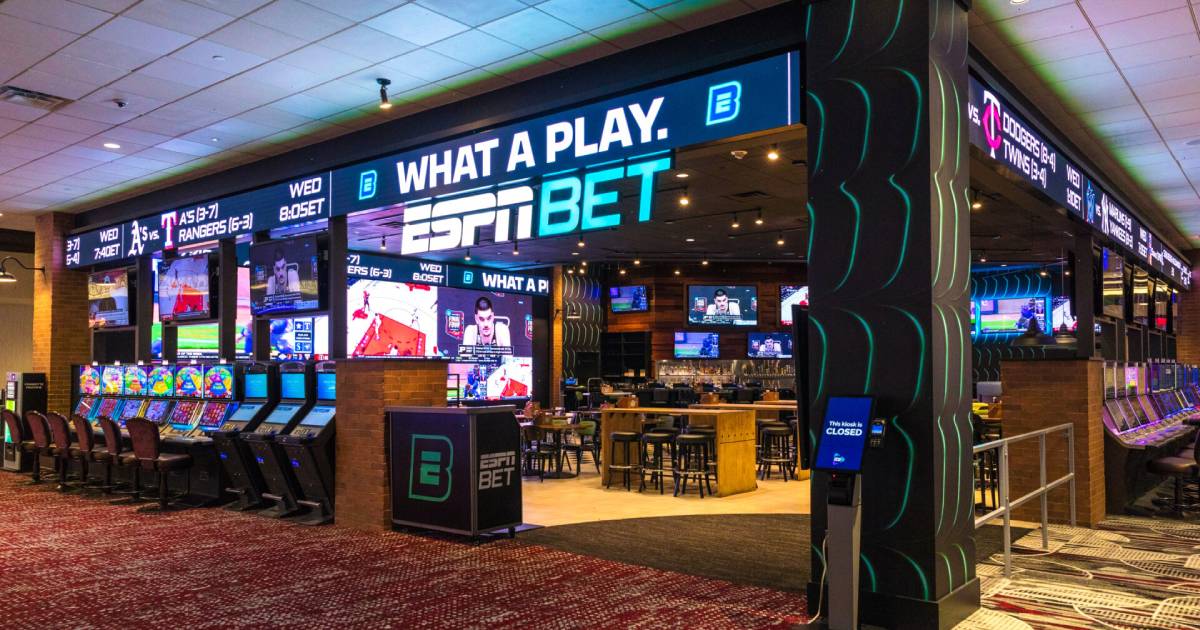Sports Betting in Play as Football Season Kicks Off

By Mark Seavy
As the National Football League (NFL) and collegiate football seasons get underway, online and retail sports betting is very much in play.
And while the licensing of sports betting services is part of the game plan—Penn Entertainment’s 10-year, $2-billion deal with Disney for ESPN Bet being the most prominent—consumer products licensing, at least for now, remains on the sidelines.
Part of the reticence around consumer products stems from sports betting not being legal nationally in the U.S., with many of the licensing agencies we polled having no immediate plans to work with brands like DraftKings, FanDuel, BetMGM, BetRivers, Caesars, Fanatics, and others to produce physical items. Thirty-eight states so far have legalized online and retail sports betting, making national distribution for consumer products at retail a hurdle that still needs to be cleared.
“It seems like a terrific man cave opportunity for licensing, and I could see some of that happening,” said Jeff Lotman, CEO at Global Icons. “You could create this man cave world of poker, cigars, and betting. And because so much of sports betting is done on your phone, there is an opportunity to aggregate some of these different betting services to create a betting parlor.”
But the delays around national launches haven’t prevented the sportsbooks from heavily marketing their brands across media platforms. U.S. sportsbooks spent about $1.8 billion in 2022 on marketing, with various services budgeting as much as $200 million annually with a sharp focus on digital advertising. FanDuel, which has more than three million monthly active users, has about a 38% share of the sportsbook market followed by Draft Kings (2.7 million monthly active users) and ESPN Bet (700,000 monthly active users as of spring 2024), the latter having launched last November. The average cost of acquiring a new customer is $250-$750 depending on the region and the lifetime value is $1,200-$1,800 over a two- to three-year period.
Not all licensing deals for services have worked out, however. 808 Holdings, best known for its William Hill sportsbook in the U.K., shut down a Sports illustrated version 2.5 years into a 20-year agreement with Authentic Brands Group and must pay $50 million in two installments.
Moving forward, some manifestations of retail betting, like physical locations for the services, are either in the works or have been created. Penn Entertainment, for example, unveiled the ESPN Bet-branded sportsbook and restaurant at the Hollywood Casino in Detroit in time for the NFL draft and posted a 6.5% increase in revenue at the property, CEO Jay Snowden said. Penn is also adding ESPN Bet to its Hollywood Casino in Columbus, OH. Overall, the Penn Play database has 31 million members, including 3.8 million in its digital database, an increase of more than 80% since ESPN Bet launched, Snowden said.
“It’s attracting a wider user base and more casual bettors,” Snowden said. “This all lays out a great opportunity for us, especially as we convert more and more of our retail sports books and rebrand them to ESPN Bet and you have the name and brand recognition.”
The popularity of sports betting is clear from the operators’ financial results. Flutter Entertainment, which purchased FanDuel in 2018 for $4.17 billion, reported a 20% increase in Q2 revenue (reaching $3.6 billion), which included a 41% rise from sports betting. DraftKings, for its part, posted a 26% increase in Q2 revenue (reaching $1.1 billion) and increased its forecast for annual revenue to $5 – $5.2 billion, up from an earlier range of $4.8 – $5 billion. These financial results, unlike other businesses, appear unaffected by tighter consumer spending, industry executives said.
“We’re seeing absolutely no signs of any weakness in the consumer whatsoever,” DraftKings CEO Jason Robins said. “It’s hard to know how much of that is unique to our industry versus macro, but really, on our end, we’re seeing strong, healthy consumer behavior across the board.”




